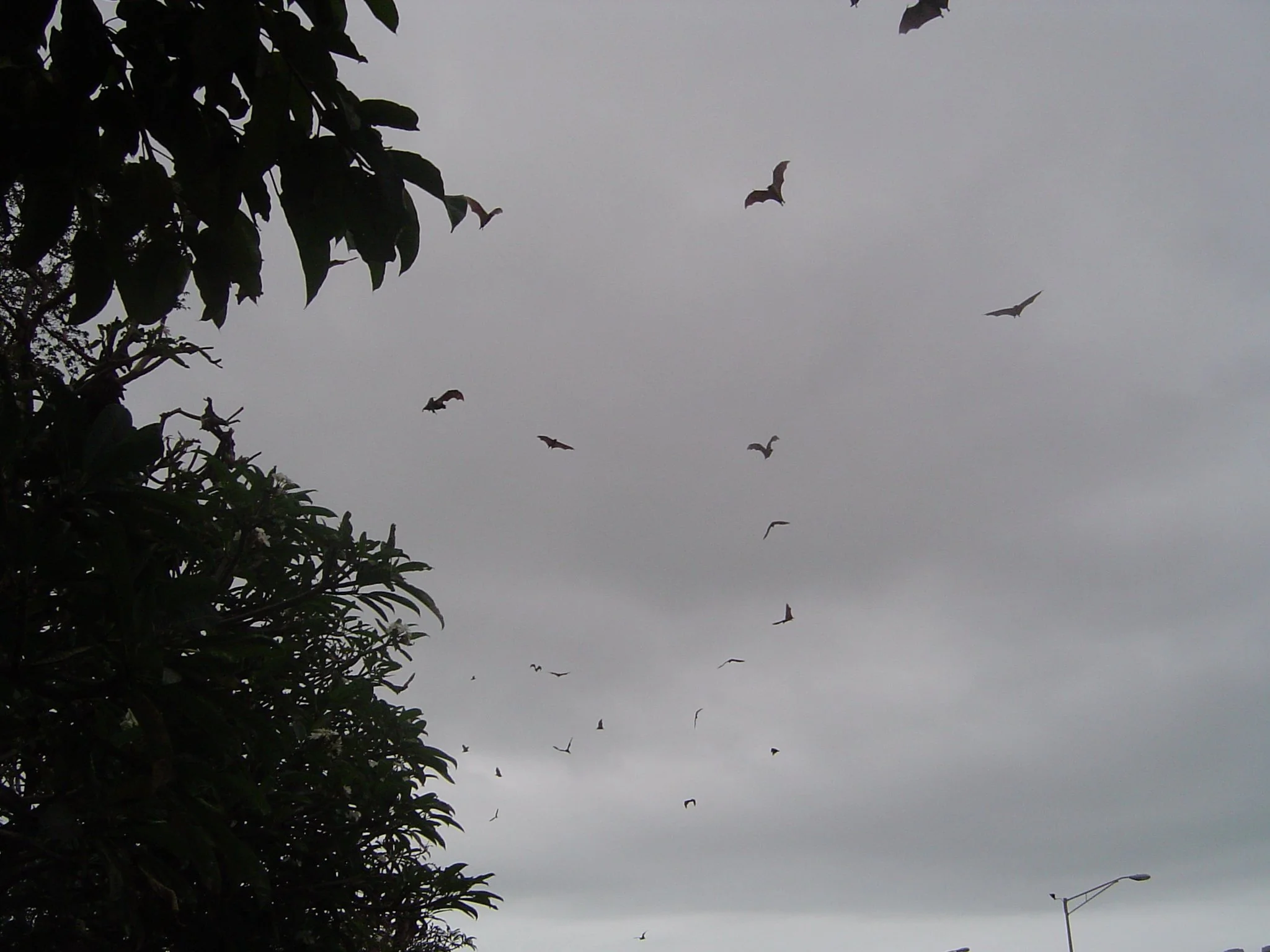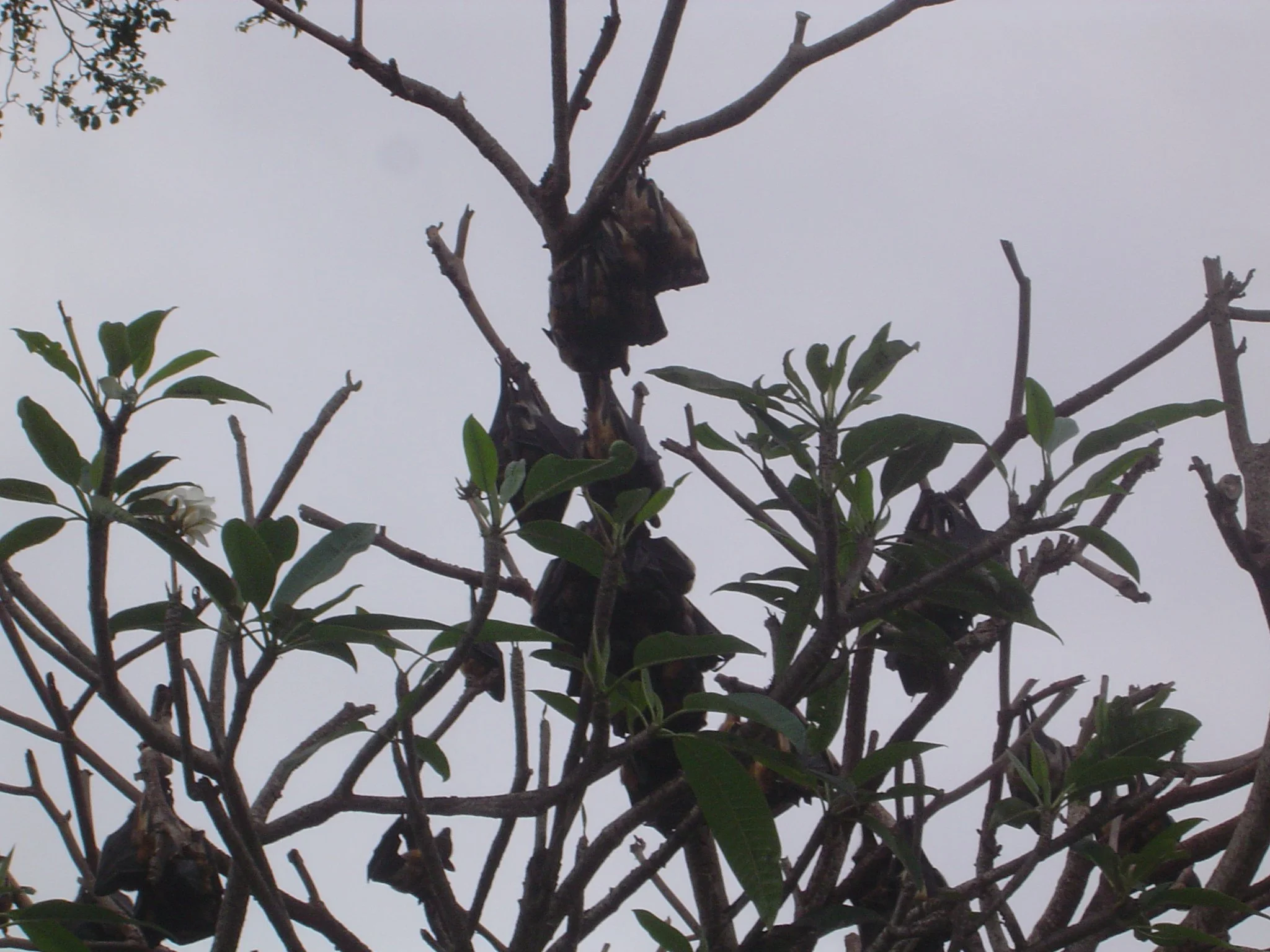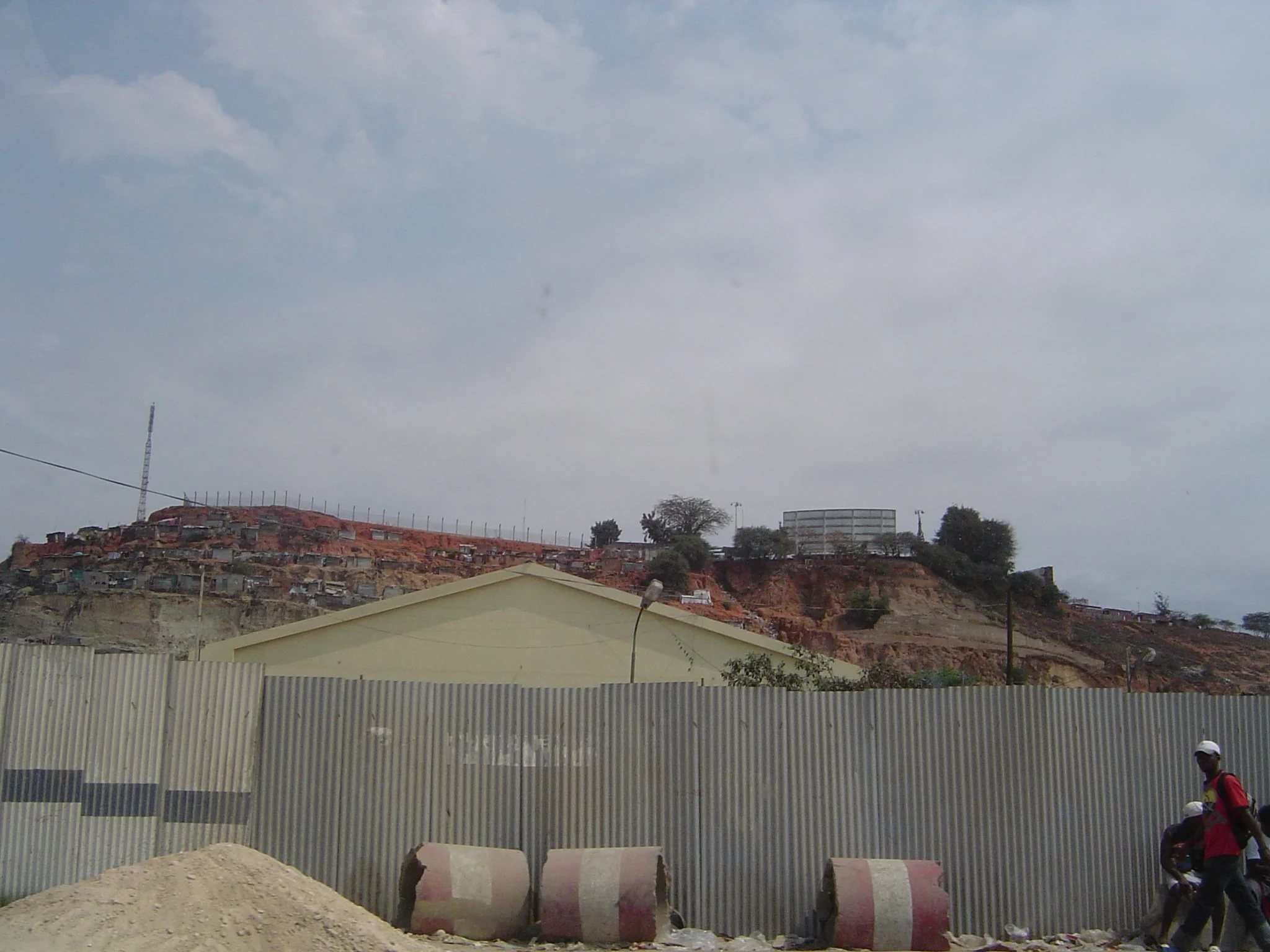Angola 2005
Luanda, Angola
September 2005
Vacations for Dummies: Angola
In the continuing series now referred to as Vacations for Dummies, we visit lovely Angola in the south part of the African Continent. Angola is known for oil, diamonds, and the longest civil war in the 20th century. This trip has been divided between Luanda (From the Portuguese “Lu” which means “toilet” and “Anda” which is an abbreviation of “granda” or “really large”) and Cabinda (From the Portuguese “Ca” or “to cough or gag” and “binda” which means “doubled over”.) Portuguese is the native tongue, although fluency is not necessary to travel in Angola. All nationals in hotels, restaurants, and shops can effectively ignore both English and Portuguese requests.
Angola is the farthest below the equator I have ever traveled. People often ask me if it is true that that below the equator toilets flush counter-clockwise. OK, no one has ever asked me or really cares, but I’ve always wondered if it was true. Some may refer to this type of misinformation as an urban legend, but I differentiate it as a vicious lie. There are no working toilets in Angola, so how can the water swirl counter-clockwise? But, given all the food here is really bad, and the water is contaminated, you find the demand for toilets not that significant. I bent a butter knife (they won’t pass out steak knives - too high a risk of a patron trying to end it all!) in the Cabinda Base Cantina trying to cut a ¼ inch thick meat-thingy (I’m telling myself it was “beef”) one night. It is best to be prepared for culinary situations in Angola:
Q: If you dropped a piece of steak on the floor, should you eat it if you can pick it up in less than five seconds?
A: Absolutely not. If you are really hungry, pick up the floor tile chipped off by the steak and eat that.
Q: If you are served fish by your Angolan host, is white or red wine preferable?
A: Read the label carefully on this one. Select the wine with the highest alcohol content that will either numb the suffering or render you unconscious the quickest. Alternatively, whack the bottle on your head until you lose consciousness.
At one place, I think something I ate disagreed with me. Oh, I didn’t get sick or anything, but it growled at me from the doorway then took off running when someone from inside ran after it. I didn’t think much about that until I ordered the filet. In all fairness the menu did not say “beef” or even “pork” filet, so I shouldn’t complain.
I have been in horrible traffic in Port Harcourt, Jakarta, Cairo, Mumbai and various other cities in the world, but Luanda is clearly the worst. I have not been anywhere in town (airport, hotel, work) that I could not have walked faster than driving, if arriving alive had not been necessary. We took 4 ½ hours to clear immigration, go about 5 miles to the hotel where we took about a half hour to check in and then to the office. Since the cars can’t make it to the market, the market comes to the car. I have seen the following for sell from Angolans walking between the stopped cards in traffic: plastic wrapped dress shirt with tie and an electric iron; commercial grade tile cutter; wall clocks; alarm clocks: watches; surge protectors, 6” padlocks; 30 plastic patio chairs (balanced on a lady’s head); tubs of hamburgers; fruits; a mattress (full-size); and candelabras.
I spent four days just outside Cabinda at an isolated camp on the edge of the jungle. The wildlife was amazing. So were all the animals. On all previous trips to Africa, I have stayed in large cities, so this was quite a change. The first day we saw two gazelle’s grazing, about two dozen 2’ tall monkeys on the soccer field (They were pretty sloppy protecting the goal!), and about 5,000 fruit bats hanging upside down in the trees outside the cafeteria. I asked one of our engineers here if he thought there were 5,000 bats and he just looked at me and said “you are obviously in audit and not sales – there are 2-3 times that many.” The limbs of all the trees are dying and their limbs are drooping because of the sheer number of bats roosting. And these aren’t little mice-type bats with wings. These guys average over a foot long in body length with a 2-3 foot wing-span. When I had to walk by them anytime I wanted a meal, I expected the theme from the movie Jaws to start playing. That, or a dinner bell to ring. While I could see no evidence that the bats were engaged in any activities associated with killing and eating any mammals, much less humans, they did almost claim one casualty. My co-worker, who was very apprehensive to occupy the same outdoors with 5,000 bats, and I were standing outside the cafeteria waiting on our ride. A large magnolia-type leaf fell on the sidewalk. Note that I said a leaf and not some remains of a human body fell on the sidewalk. My co-worker, “Braveheart,” leaped about four feet in the air, then completely disappeared before my eyes. I found him about a mile away gasping for air. I asked if he had a bad history with leaves I should know about.
This camp had an alarm drill our first day. I am familiar with the full array of offshore oil rig alarms: fire, abandon rig, man overboard, girl tanning on boat deck going by, etc. We had an alarm on Friday that the office manager mentioned to expect at 4:00pm. It was to abandon the camp. Since there is a refinery in the camp, I asked if vehicles could be used in such an alarm. (Most refineries specify no spark rules during abandoning alarms to reduce the chances of igniting a gas leak.) His paraphrased response was: “If you hear this alarm, use whatever means you can to get your #$%%# to the beach pronto.” It seems this alarm means the secured and enforced parameter of the camp has been breeched by guerillas. Since we had just saw 20 monkeys on the soccer field, I made sure he had not said “gorillas.” “Guerillas” was the correct term. If course, to get into the camp, they have to cross: a series of razor wire, an electric shock grid, land minds, and a second series of razor wire.
Probably the only thing worse than the traffic here are the phones. The land lines in the office work about 30% of the time. And, during that 30%, maybe only the earpiece or the mouthpiece is actually working, but not always both. Same with the hotel and the second office we were in. Everyone has cell phones, but if they ring, the answerer has to sprint to the window and lean out as far as the bars on the outside will allow to talk. This makes trying to communicate with home during Hurricane Rita’s approach to home and Houston very difficult. My coworker’s wife is expecting Oct 30 and during the stress of trying to decide what to do when into labor. I got Travel to get him on the next direct plane to Houston, then that flight, plus the next one was cancelled. Fortunately, the labor ended up false and she is with several family members now. He and I are both back to leaving Tuesday, which is good because there are only about five total flights a week into Angola, three of them chartered. There is Angola’s national airlines, but if you saw the planes, I wouldn’t dare climb on one that was parked and shut down, much less ride in one for fear of my life. I prefer the plane having all the parts upon landing (ie, wings, tail, fuselage) that it had upon taking off. Call me fussy.
Footnote: After mandatory evacuation of the greater Houston Area, Rita hit Beaumont. While Beaumont and the path north was seriously damaged, Houston did not escape unscathed due to the incompetence of bureaucrats recommending full evacuation 100 miles inland instead of shelter in place. Several died due to the exteme (100+) heat, inability to move in unimaginable traffic that would put Luanda to shame and shortages of fuel causing hundreds of stranded motorists. So, while I write of extremes I encounter overseas, it’s not really that much different at times at home with the politicians in charge!
Obrigado! (“Thank you” is the only Portuguese I have picked up in two weeks!)
Senior Keith













